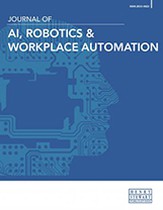Blockchain technology and the potential of waqf (Islamic endowment) sector revival
Abstract
The waqf (Islamic endowment) sector encompasses significant untapped wealth that can contribute to socioeconomic and sustainable development. The sector suffers, however, from prevailing trust issues that have weakened its role and impaired its effective utilisation. As a trust-building technology, blockchain emerges as a potential solution to overcome waqf challenges. To demonstrate the prospects of blockchain technology in waqf revival, this paper presents the challenges faced by the waqf sector and the value that blockchain technology can bring to the sector, the challenges facing the adoption of the technology considering the prevalent governance and management structures and the current operating models. It also overviews blockchain in practice. This paper argues that the value of blockchain technology in waqf lies primarily in the development and management of waqf assets. This value, however, may only be reaped once existing waqf challenges have been resolved and a carefully architectured governance structure is developed. The waqf development and management model warrants close coordination with government agencies and waqf authorities as the current custodians of waqf assets. This renders some features of blockchain, namely decentralisation, irrelevant. Challenges related to legal and Sharia uncertainties surrounding blockchain technology and cryptocurrencies pose risks that must be carefully considered to ensure that blockchain waqf platforms are not pursued as a venture driven solely by blockchain hype.
The full article is available to subscribers to the journal.
Author's Biography
Ahmet Faruk Aysan Ahmet Aysan is a Professor at the College of Islamic Studies (CIS) and the Programme Coordinator of the PhD and MS programmes in Islamic finance and economy, Hamad Bin Khalifa University, Qatar. He has been a Board member and Monetary Policy Committee member of the Central Bank of the Republic of Turkey and served as a consultant at various institutions such as the World Bank, the Central Bank of the Republic of Turkey and Oxford Analytica. Other roles include Non-Resident Fellow, Middle East Council on Global Affairs (ME Council) and Research Associate, University College London Centre for Blockchain Technologies (UCL CBT). Ahmet’s fields of specialisation are Islamic finance, FinTech, macroeconomics, political economy, banking and finance, and he is a member of the editorial and advisory boards of several prestigious international journals. He has received grants from various international funds including the ERF, Newton Fund and TUBITAK. Ahmet has also served on the advisory board of Contemporary Turkish Studies at the London School of Economics and Political Sciences (LSE) European Institute. In 2020, Ahmet was listed as being among the top influencers in Islamic banking and finance by an academic article published in the Pacific-Basin Finance Journal.
Hiba Ali Al-Saudi Hiba Al-Saudi is a PhD Student at Hamad Bin Khalifa University. She is a Chief Financial Officer with a professional background in finance and audit. Hiba’s research interests are social finance, FinTech, blockchain waqf and sukuk.
